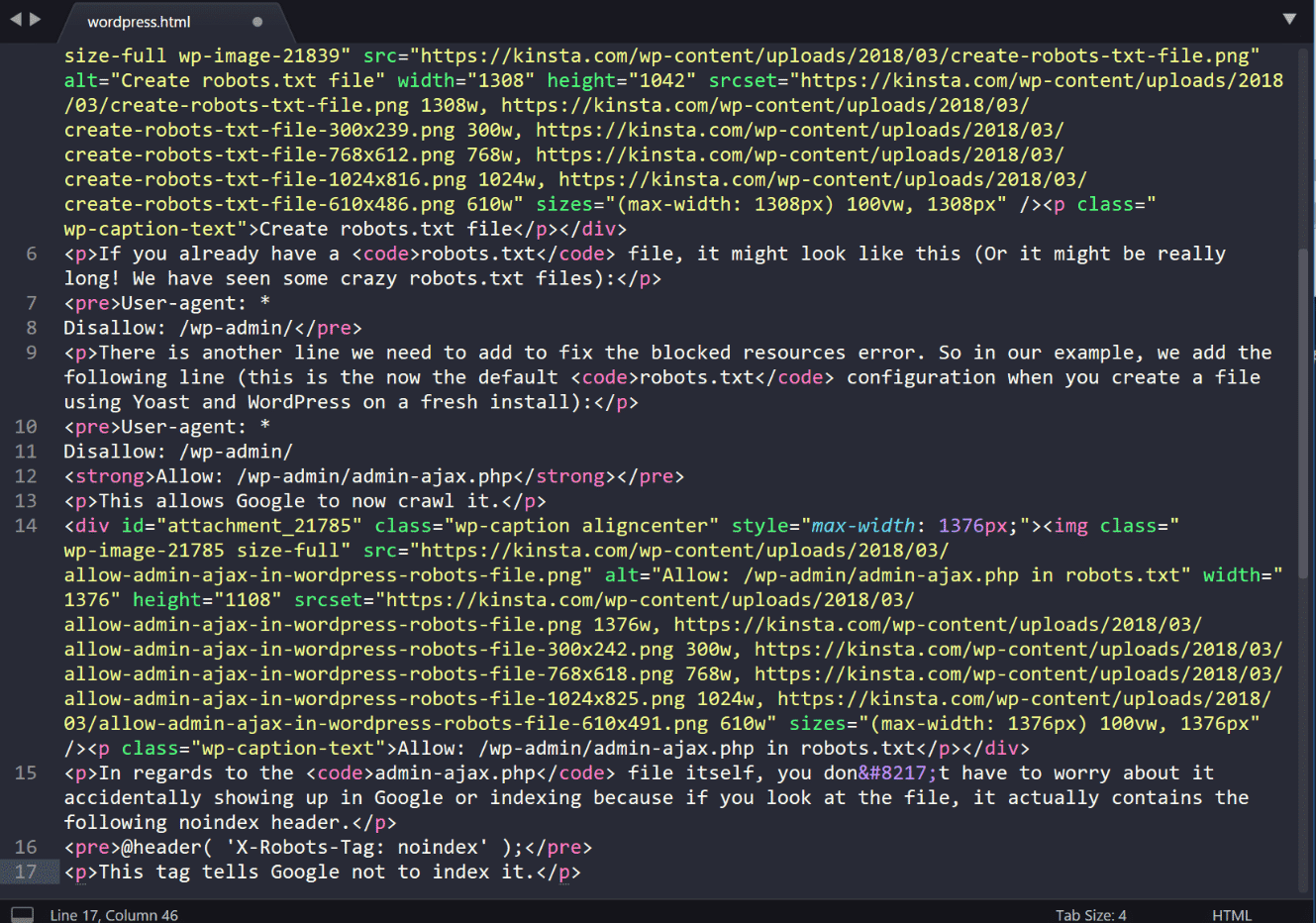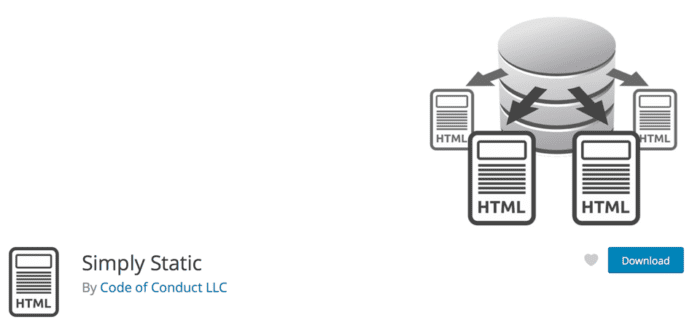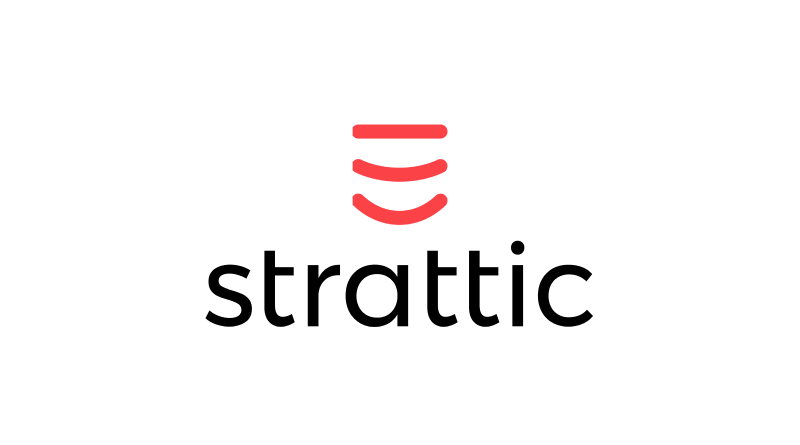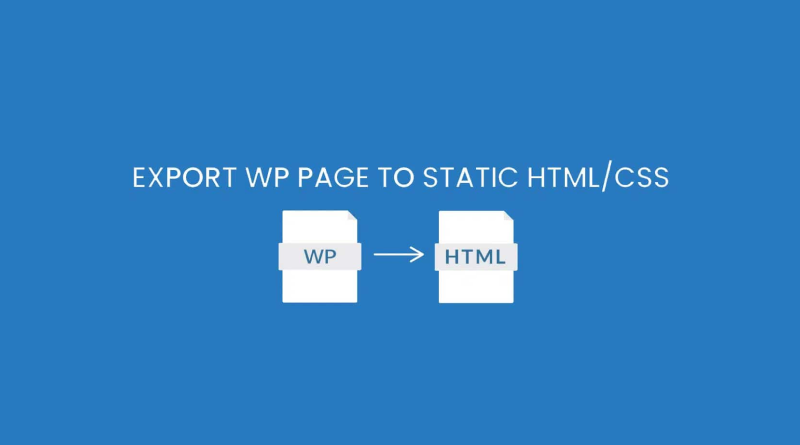WordPress is the most widely used Content Management System over the globe. As this platform being flexible to use, there are numerous users who prefer WordPress for their requirements such as a blog, basic website, e-commerce or classified websites. WordPress becomes more simplified when you choose WordPress hosting for your website.
But, there are times when you would want to switch back to the basic HTML version of your website. It is recommended to have a HTML hosting resource to scale website’s online presence with no framework issues. This can be due to many reasons such as website slow, security, etc. Converting your website from WordPress to HTML is not that easy. All that it needs is time and patience to make it a success.
In this read, you will learn how to convert your WordPress website to HTML without losing any data. Share on X Before that, we will see the difference between both and the reasons you should convert your site from WP to HTML.
Difference Between WordPress and Static HTML
Whether your website is built in WordPress or HTML, at the end, it is going to look like HTML in the frontend. It means, the code of your website will look something like this no matter which method you use to develop your website:

The major difference is how they came into existence.
In a static HTML website, a developer writes a program along with your content and then puts it up on the server. Once this is done, your website is permanently like that. There is no additional process in the background while your site is up and made live.
However, in WordPress a content management system is used which is supported by PHP and a database. Meaning when someone visits your website the following process takes place:
• The PHP code gets executed and is put together with the HTML version of your site.
• A query runs in your database to display the content into that HTML.
• Once this process is successful at the backend, your WordPress website is displayed onto a web browser.
Why switch WordPress site to HTML?
One of the common reasons for converting your WordPress site to HTML is page load speed. The web pages in WordPress are dynamic and every time your webpage is visited, it loads your page dynamically. Due to this, the speed of the webpage gets affected. But it is not the same, when it comes to an HTML website because there is no dynamic content. Thus, improving the website’s speed and strength.
One more factor can be security. With static data storage, there is no chance of any web attacker to exploit or hack your website. Also, a no-dynamic website does not store any database to save its content and, as a result, caters to faster-performing web pages with reduced maintenance. Here are the top reasons why developers shift their websites from dynamic WordPress to static HTML:
- Static HTML sites require less maintenance because they have no database, compared to dynamic WordPress sites.
- These sites typically have pre-rendered files, which allow much faster performance than dynamic WordPress sites.
- Static HTML websites can be easily scaled to handle traffic spikes because their pre-rendered files handle server load efficiently.
Tools to Migrate from WordPress to HTML
Now that you are here, you must be wondering which tools are available that convert your WordPress websites to static HTML websites. Yes, it’s true that converting your WordPress to HTML is a complex task. However, some WordPress plugins make the process quite easy.
Related- 5 Useful Ways To Reduce Server Response Time For A WordPress Website
Here, we have listed some plugins and tools to convert your WordPress sites to HTML.
1. Jekyll
This is a static site generator tool supported by GitHub. Mostly, Jekyll is used to convert small projects or blogs to static pages. It is popularly known as “a simple, blog aware, static site generator”. Jekyll picks the directories from the template that contains text files in any given format. Then it converts and renders them followed by generating static HTML websites.

Features:
• A website in Jekyll is a group of files into a single directory. Your complete website can be stored in a Git repository because the GitHub pages are closely combined with Jekyll.
• Jekyll is a really a huge community, and so, a number of installation guides and documentation are available for it. Therefore, you can easily import content from WordPress and convert to HTML.
2. Simply Static
Developed by Code of Conduct LLC Simply Static is a static site generator and is an open-source plugin. The principal goal of this plugin is to build a static website from your WordPress site. It generates HTML copies of your web pages in WordPress, keeping your WordPress setup completely as an individual entity from the static site.

Features:
• Simply static includes Stylesheets, JS and images.
• This tool is one of the easiest ways to convert your WP site to a static one just with the help of a single click.
• The WordPress URLs are automatically replaced with relative URLs, absolute URLs or offline URLs.
3. Pelican
Pelican tool allows you to write content in reStructuredText, Markdown or AsciiDoc format and it will convert it into static HTML. You can even import from Dotclear, RSS feeds or WordPress. Additionally, it has in-built tools to help you generate sitemap files.

Features:
• You can publish your content in multiple languages.
• This tool helps in customizing themes using Jinja templates.
• Some features like Atom, RSS feed, social media integration, are supported along with tools like Google Analytics, commenting tool- Disqus and code syntax highlighting.
4. WP Static HTML Output
WP static is another simple yet powerful tool that helps you convert your WordPress site into static HTML. This tool lets you export unlimited targets for your single website. WP static is an open source plugin that creates an HTML version of your complete site.

Features:
• Your website is deployed to a local folder FTP, Amazon S3, Dropbox and Github.
• It supports two languages (Japanese and English).
5. Hugo

While looking for the tools to convert your WordPress website into a static HTML site, Hugo can be your search engine. It is an open-source static site generator, primarily written in Go script.
It offers high-speed website generation with the help of its dedicated content types. It supports content-driven websites with a wide variety of content types, taxonomies, menus, and even dynamic API-driven content. The best thing is that it doesn’t require any additional plugins or tools to support the HTML website generation process.
Features:
- Hugo has a supportive script for multilingual website generations. It allows the web developer to create multilingual static websites.
- It has pre-made templates with feature blocks such as comments, analytics, social media sharing, and SEO optimizations.
- It has a very user-friendly interface, making it suitable for both beginners and web developers.
6. Eleventy

Eleventy creates an open-ended website by utilizing a basic collection of HTML templates and CSS styles. The complex web frameworks are built and designed using extensive features like custom layouts, shortcodes, and JavaScript modules.
Eleventy also makes it easier to find desired templates because of the extensive community support. The community team adds the templates and designs rather than the core team. For websites with minimal designs and simple layouts, it can be a great help and can easily convert WordPress websites into HTML.
Features:
- Eleventy has great customization features. Even its pre-made templates offer easy customization so that the conversion process is simplified.
- Complete control over the theme allows web developers to design their theme right from scratch and convert their websites into static ones.
7. HTTrack

HTTrack is another useful tool to convert your WordPress websites into HTML static websites. It downloads the files in HTML, CSS, and JavaScript and saves them in the local directory of the websites. This file can then be further used to generate the conversion of the WordPress site into an HTML website.
The limitation of HTTrack is that it cannot download all the dynamic files of the WordPress website, and hence the web developer may need to create blocks like user profiles, comments, or others. Since it is an open-source web crawler and offline browser, the process of converting a dynamic WordPress website into a static one is quick and easy.
Features:
- HTTrack allows you to create static websites offline and it crawls the websites and copies them exactly without errors or misplaced files.
- With its crawling ability, it can create local copies of the websites that help in the development process of the websites.
8. Gatsby

Gatsby is a pre-built static website generator powered by ReactJS and GraphQL. It converts dynamic WordPress websites quickly with the help of its plugins. These plugins are configured specifically to connect to and fetch content from the WordPress sites, which smooths the conversion process.
Features:
- Websites generated by Gatsby can be deployed easily on any type of web hosting service.
- Gatsby typically offers improved web performance, less maintenance, high security, and scalability to the converted websites compared to the other tools available.
9. Strattic

Are you looking for a specific tool built for converting WordPress sites to static HTML that offers a seamless transition process? Then, Strattic is the perfect solution. It is customized specifically for the user-friendly transition approach. The Strattic is a static site generator built specifically for converting WordPress sites to static HTML. It offers a streamlined and user-friendly approach to this process, making it easier for WordPress users to create and deploy static versions of their websites.
It has various WordPress-oriented plugins, like custom post types, shortcodes, and widgets, which ensure a smooth conversion process.
Features:
- Strattic is well known for its automatic conversion process. It fetches the details of the WordPress site and its important media assets like posts, pages, images, etc., and automatically converts the WordPress website into static HTML files.
- It also provides the developer with an easy integration process. Strattic integrates with the WordPress themes and copies the WordPress website’s overall design and layout.
10. Export WP Page to Static HTML/CSS

Export WP Page to Static HTML/CSS is a WordPress plugin. Since it is a plugin for WordPress specifically designed to convert WordPress sites into HTML, it allows developers to access each dynamic function of the WordPress website.
The plugin helps web developers convert each dynamic feature of WordPress into static HTML blocks that can be available offline.
Features:
- Exporting a WP Page to Static HTML/CSS allows the developer to choose the static buttons. It allows them to export the complete page or post the page without images or comments.
- It directly exports the files in static HTML or CSS format for easy conversion of the websites.
Which Websites Should Be Converted From Dynamic WordPress To Static HTML Sites?
The conversion of WordPress websites into HTML sites is very common. There are various reasons behind the conversion of the websites. Let’s know which website types should be converted from WordPress to HTML.
- Websites that should convert from WordPress to HTML are as follows:
- Websites that can run without the dynamic features.
- Website with high traffic and performance requirements.
- Websites that do not require frequent updates and maintenance.
- Websites that do not include live interaction and serve as informational notes.
Now that you know converting your website from WordPress to static HTML is quite easy with the help of some tools, it’s time for you to convert your website. But, with these many tools available, are you confused about which tool should you choose? Let me tell you, this decision completely depends upon which tool you find easy to work with.
We hope that this article has helped you learn ways to convert your WordPress website to static HTML. After all, the main purpose of switching from WP to HTML is to safeguard your website from potential attacks and enhance the speed of your website.
If you have used any of the tools mentioned above or some other tools which aren’t listed here do share them in the comment section below.















